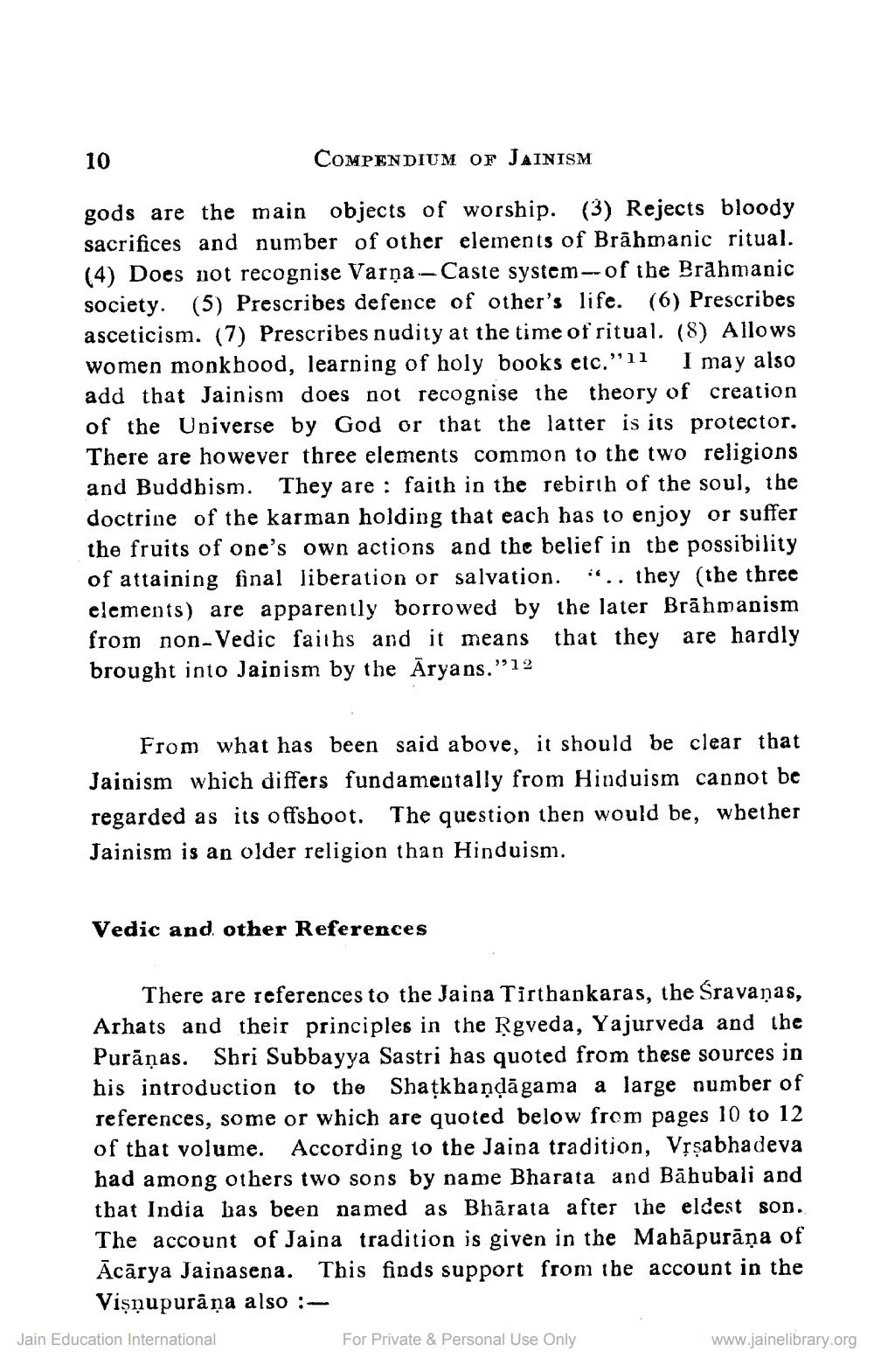________________
10
COMPENDIUM OF JAINISM
gods are the main objects of worship. (3) Rejects bloody
ifices and number of other elements of Brahmanic ritual. (4) Does not recognise Varņa-Caste system -- of the Brahmanic society. (5) Prescribes defence of other's life. (6) Prescribes asceticism. (7) Prescribes nudity at the time of ritual. (8) Allows women monkhood, learning of holy books etc."11 I may also add that Jainism does not recognise the theory of creation of the Universe by God or that the latter is its protector. There are however three elements common to the two religions and Buddhism. They are : faith in the rebirth of the soul, the doctrine of the karman holding that each has to enjoy or suffer the fruits of one's own actions and the belief in tbe possibility of attaining final liberation or salvation. .. they (the three elements) are apparently borrowed by the later Brāhmanism from non-Vedic faiths and it means that they are hardly brought into Jainism by the Āryans."12
From what has been said above, it should be clear that Jainism which differs fundamentally from Hinduism cannot be regarded as its offshoot. The question then would be, whether Jainism is an older religion than Hinduism.
Vedic and other References
There are references to the Jaina Tirthankaras, the Śravaņas, Arhats and their principles in the Rgveda, Yajurveda and the Purānas. Shri Subbayya Sastri has quoted from these sources in his introduction to the Shatkhaņņāgama a large number of references, some or which are quoted below from pages 10 to 12 of that volume. According to the Jaina tradition, Vșşabhadeva had among others two sons by name Bharata and Bahubali and that India has been named as Bhārata after the eldest son. The account of Jaina tradition is given in the Mahāpurāņa of Ācārya Jainasena. This finds support from the account in the
Vişnupurāņa also: Jain Education International For Private & Personal Use Only
www.jainelibrary.org




